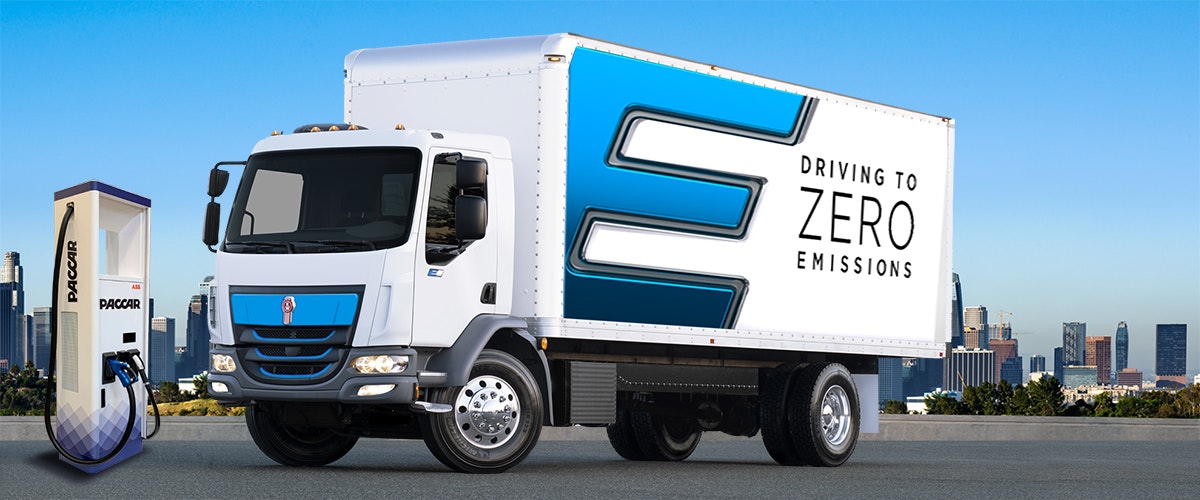
While electric vehicles (EVs) have gained significant traction in recent years, the heavy vehicle sector in Australia has yet to catch up in policy and adoption of EVs, despite promising zero-emissions trials. We look at industry groups actively pushing for change and highlighting the importance of transitioning to zero-emissions in the heavy vehicle industry.
Overall benefits of EVs in the transport industry
In their report, "Electric trucks: keeping shelves stocked in a net zero world", the Australian Trucking Association (ATA), together with the Electric Vehicle Council (EVC), make a case for electric trucks, highlighting the road freight sector contributes 38 per cent of Australia's total transport emissions.
The 2022 report also points to the environmental, economic, and health advantages of transitioning the entire industry to electric vehicles, including:
- Switching to electric trucks can save on diesel costs, reduce fuel price volatility, and lower maintenance costs.
- An electric truck fleet can improve urban air quality and working conditions for truck drivers, thanks to lower noise and fewer vibrations.
- Electric vehicles emit significantly less noise than those running on internal combustion engines. This means they could be used outside curfew limits, leading to more flexible operating hours and less traffic congestion on major thoroughfares.
Milestone in heavy vehicle trial of new zero-emissions technology
Three Australian construction companies have completed a full trial of new zero-emissions technology — an Australian first for the construction sector regarding electric truck trials. The partnership between CHL, Holcim Australia, and Janus Electric used the Janus Electric converted prime mover to transport sand and other construction materials in short-hauls from Holcim's plants across Brisbane and Southeast Queensland.
Beginning in November 2022, the trial tested the electric vehicle's economic viability, reliability, and performance with CHL’s General Manager of Operations, Jordan Barratt, confirming the Janus Electric truck met the operational requirements for short-haul, back-to-base scenarios.
The companies have achieved a milestone in the transition to a more sustainable transport industry, with CHL setting a goal to deploy ten zero-emissions trucks in Southeast Queensland by early 2024, which will be the largest fleet of its kind in Australia.
Despite the trial's success, Janus Electric CEO Lex Forsyth highlighted the need for greater government support, investment, and incentives to accelerate the transition to sustainable transport. The need for more support is a significant challenge in the widespread adoption of zero-emissions technology in the transport industry in Australia.
Current barriers to the widespread adoption of heavy EVs
While the benefits of zero-emissions technology are clear, the widespread adoption of heavy electric vehicles (EVs) in Australia faces several challenges.
-
Limited choice of heavy EVs
A key challenge in adopting heavy EVs is Australia's limited choice of models.
The lack of variety makes it difficult for businesses to find the right EV to meet their needs.
-
High up-front costs
One of the biggest barriers to widespread heavy EV adoption is their high up-front costs.
Compared to traditional diesel trucks, EVs are often more expensive up front, which can deter businesses from making the switch. However, an EV may be more economical than a diesel truck over time.
-
Lack of infrastructure for quick charging stations
Another challenge to the widespread adoption of heavy EVs is the need for more infrastructure for quick charging stations, especially for trucks that travel long distances.
New charging stations are being built, but there are still many areas where it is difficult for EV drivers to find a quick charge, limiting their range and productivity.
-
Range anxiety
Range anxiety is a major concern for many businesses considering the switch to heavy EVs.
While the average range of an EV is increasing, some companies are still concerned about running out of power before they can complete a job or reach a charging station.
In the State of Electric Vehicles report, the Electric Vehicle Council called on governments to provide more support to truck operators in the process of decarbonising their vehicle fleet.
The report proposes a range of measures such as offering temporary financial incentives like zero-interest loans, implementing sales targets to encourage supply, reforming the Australian Design Rules to increase vehicle width to at least 2.55m and providing a 1-tonne mass concession to electric trucks.
The report also suggests that deploying dedicated charging infrastructure for these larger electric vehicles will help accelerate the transition towards zero-emissions technology in the transport industry.
If you’re in the transport industry and are thinking about transitioning to become a more sustainable business, please get in touch with us today.